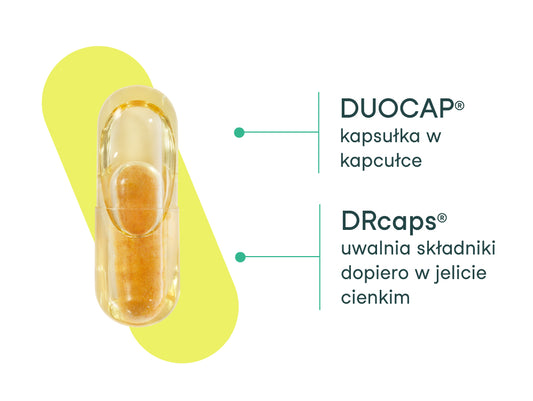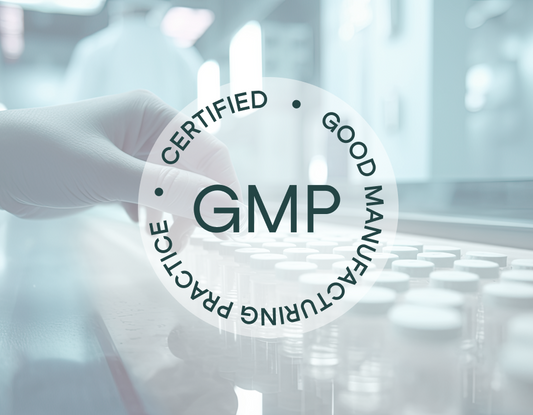
Nutrition, supplementation, lifestyle - you need to sort this out when you are thinking about expanding your family. We tell you where to start when planning a pregnancy.
Pregnancy is not a disease, but it is a very specific condition of the body due to the raging hormones. They cause mood swings. They also change the functioning of the mother's entire body, which must provide resources to the child developing in the womb. The Polish Society of Gynecologists and Obstetricians therefore recommends taking care of the necessary micro and macronutrients in the body before getting pregnant. There is plenty of evidence that an appropriate lifestyle and a healthy diet have a beneficial effect on the fertility of couples. They also affect the course of the long-awaited 9 months, as well as the condition of the newborn and infant.
What should you do before pregnancy? Health review.
Depending on your medical history, your list of doctors and tests will vary. Each of us has a weak spot somewhere else. It is worth remembering that blood counts alone do not show all disease changes. If we are struggling with fatigue, caffeine dependence, stress, menstrual disorders - let's spend more time on diagnostics . Many medications should not be taken during pregnancy. All inflammatory processes and chronic diseases in the active phase should be calmed down in advance. What else?
- A visit to the gynecologist , preventive examinations of the breasts, ovaries and uterus - this is an obvious must-have. Cancer is more and more common in young women, including those expecting a child. Pregnancy hormones only enhance the development of the disease. It's better to do your research and avoid unpleasant surprises.
- It is very important to check your thyroid function before pregnancy. Every fifth person in Poland has or has had a disease of this gland, most of them are women. Hypothyroidism negatively affects fetal development and contributes to miscarriages and other pregnancy complications. At the stage of planning a child, it is worth ensuring that the TSH hormone level is not higher than 2.5 mU/l.
- A visit to the dentist . X-rays are not allowed during pregnancy. Treatment and diagnostic options for complex dental cases are limited.
A varied and balanced diet is the basis for preparation for pregnancy.
Nutritional deficiencies may cause infertility. Reproduction is not a priority for the body if it is not getting enough nutrients even for itself.
The basic building material of all cells (including that of a developing child) is protein . It cannot be missing in the future mother's diet and it is best if it comes largely from plant sources. For example, from legumes (chickpeas, lentils, soybeans, beans), cereals and pseudocereals (rye, oats, buckwheat, barley, quinoa, amaranth, barley, spelt), vegetables (potatoes, kale, broccoli, Brussels sprouts, asparagus), nuts and grains.
An expectant mother should avoid trans fats . They are contained in fast-food dishes, cubed margarine, store-bought sauces, confectionery, crunchy snacks, but not only. You can check the content of these harmful substances in specific products in the database of the National Institute of Public Health. Trans fats may cause fertility problems.
In turn, polyunsaturated fatty acids (PUFA) have a positive effect on ovulation and the reproductive system. They are necessary for the proper development of the child's brain and nervous system. They also reduce the risk of premature birth. We find them mainly in fatty sea fish, algae and seafood.
The future mother should take care of the quality of carbohydrates in her diet. High consumption of simple carbohydrates, including: in confectionery, syrups, sweets and juices (including freshly squeezed ones) may lead to a change in the body's sensitivity to insulin. This hormone affects fertility and ovulation. Complex carbohydrates will be a much better choice for the future mother. They contain fiber, which slows down the absorption of sugars. We can find them in groats, whole grain products, legumes and vegetables.
It is also worth thinking about food for the beneficial bacteria that live in our intestines. The future mother is a microbiota donor for her offspring. A rich microbiome means good resistance to disease. Let's serve our bacteria what they like the most, i.e. products of plant origin - vegetables, nuts, legumes, fruits. Fermented products also provide good support for the microbiome - sauerkraut, pickled cucumbers, natural yogurt, kombucha, olives. You can learn more about the microbiome in this article.

Supplementation at the stage of planning pregnancy.
Currently, there are many dietary supplements on the market for women planning pregnancy. However, not all of them can boast an evidence base of effectiveness and safety. The Polish Society of Gynecologists and Obstetricians (PTGiP) lists 4 ingredients that are particularly important for future mothers.
Folic acid.
It is crucial for the proper development of the child's nervous system (and not only that). It would be very difficult to get enough of it through the diet. The recommended dose of folic acid supplementation is 400 mg daily at least 6 weeks before conception. A safe and effective form of folic acid is Quatrefolic. If you want to learn how "traditional" folic acid can harm you, click here .
Polyunsaturated fatty acids .
We have already mentioned them in the context of the diet. However, it is difficult to obtain the necessary amount of Omega-3 from food alone. It is worth including supplementation. It is best if it contains both DHA and EPA acids, derived from algae. You will learn why algae are a better source of Omega acids than fish in this article .
Iodine.
It is a key element of thyroid health, its deficiency leads to hypothyroidism of this gland. It is also necessary for the development of the child's brain. However, among others thanks to the introduction of the salt iodization program, Poland entered the group of countries with a sufficient supply of iodine from the diet 1 . Recently, the number of women with Hashimoto's disease, who may be harmed by iodine, has also increased. For these reasons, preventive iodine supplementation is not routinely recommended to all women planning a child. However, the demand for this element increases dramatically during pregnancy. Therefore, PTGiP has determined that pregnant women should take approximately 200 micrograms of iodine a day if they do not have a history of thyroid disease.
Vitamin D.
It regulates the hormonal system, including the reproductive system, as well as the mineral and calcium metabolism. This is especially important for pregnant and breastfeeding women, as they are exposed to calcium loss from their bones. It is impossible to supplement vitamin D from the diet in adequate amounts. In turn, supplementing the "sunshine vitamin" has many health benefits (you can read about it in a separate article ). Among others prevents bacterial vaginal infections, which may be dangerous during pregnancy. Supplementation at a dose of 1500 - 2000 IU per day is recommended. Popular vitamin D3 supplements most often come from lanolin, i.e. sheep skin fat. However, obtaining lanolin contributes to animal suffering. A more ethical choice is vitamin D3 from algae. You can read why this is so here.
Choline and vitamin B12 are important, even though they are not on the PTG list.
Scientific evidence also suggests benefits that women planning a pregnancy and pregnant women may derive from supplementing choline and vitamin B12 2, 3 . Getting enough of them from your diet can be problematic. It is important, however, that the woman does not have any deficiencies at the time of becoming pregnant. In the first weeks of pregnancy we do not know about it yet, but the demand for these ingredients increases 4, 5, 6 .
At the initial stage, vitamin B12 contributes to maintaining pregnancy 7, 8 . In the following weeks, both choline and vitamin B12 are necessary for the development of the future child's brain 9 . Their deficiency is associated with neurological and metabolic diseases . Supplemented by the mother, they also affect the fetus 10, 11 . Choline and vitamin B12 also contribute to better sleep quality 12 and help maintain a good mood 13 . This is of great importance for a woman planning a pregnancy.

What about iron before pregnancy? Don't take it prophylactically.
Most scientific societies in the world, including the Polish Society of Gynecologists and Obstetricians, do not recommend taking iron prophylactically . A woman planning a pregnancy should supplement them only if she has a deficiency confirmed by research 14 . Iron taken before and during pregnancy unnecessarily may lead to, among others: to gestational diabetes type 15 and preeclampsia (preeclampsia). If you suspect that you may not have enough of this element in your body, consult your doctor. Only he can select the right dose to compensate for the deficiency (if it really exists).
Lifestyle of a woman planning a pregnancy.
We cannot forget about physical activity . If you have a sedentary lifestyle/work, it is worth taking at least 10,000 steps a day . It is worth trying to perform some tasks at work standing. You can make phone calls while walking down the hall. Avoid using the elevator. Such activity during the day is even more important than going to the gym twice a week while constantly sitting at work.
You should stop using stimulants , especially smoking , even passive smoking. The mere inhalation of tobacco smoke by a pregnant woman increases the risk of health problems in the child, not to mention active smoking.
And a few words about combating stress . It is worth looking for methods that work best for you. It could be yoga, meditation, conscious breathing, a walk in the forest, music or something else. If you master the art of quickly coping with stress before pregnancy, you will definitely benefit when the baby arrives. You can also find simple ways to relax here.
Bibliography:
- Stoś K., “Salt – does its withdrawal cause iodine deficiency?” National Center for Nutrition Education, accessed January 26, 2022.
- EFSA, “Scientific Opinion on Dietary Reference Values for cobalamin (vitamin B12)”, EFSA Journal, July 9, 2015.
- “Dietary reference values: EFSA publishes advice on choline”, European Food Safety Authority, August 17, 2016.
- As above.
- Obeid R., Murphy M., Solé-Navais P., Yajnik C., “Cobalamin Status from Pregnancy to Early Childhood: Lessons from Global Experience.” Adv Nutr. 2017
- Robertson JA, Gallagher ND, “Increased intestinal uptake of cobalamin in pregnancy does not require synthesis of new receptors.” Biochim Biophys Acta. 1983
- Hübner U., Alwan A., Jouma M., Tabbaa M., Schorr H., Herrmann W., “Low serum vitamin B12 is associated with recurrent pregnancy loss in Syrian women.” Clin Chem Lab Med. 2008
- Candito M., Magnaldo S., Bayle J., Dor JF, Gillet Y., Bongain A., Van Obberghen E., “Clinical B12 deficiency in one case of recurrent spontaneous pregnancy loss.” Clin Chem Lab Med. 2003
- Korsmo H.W., Jiang X., Caudill M.A., “Choline: Exploring the Growing Science on Its Benefits for Moms and Babies.” Nutrients. 2019
- Yan J., Jiang X., West AA et al., “Pregnancy alters choline dynamics: results of a randomized trial using stable isotope methodology in pregnant and nonpregnant women.” Am J Clin Nutr. 2013
- Moore CJ, Perreault M, Mottola MF, Atkinson SA, “Diet in Early Pregnancy: Focus on Folate, Vitamin B12, Vitamin D, and Choline.” Can J Diet Practice Res. 2020
- Honma K. et al., “Effects of vitamin B12 on plasma melatonin rhythm in humans: increased light sensitivity phase-advances the circadian clock?” Experientia, 1992
- Leishear K. et al., “Relationship between vitamin B 12 and sensory and motor peripheral nerve function in older adults.” Journal of the American Geriatrics Society, 2012.
- Zimmer M., Sieroszewski P., Oszukowski P. et al., "Recommendations of the Polish Society of Gynecologists and Obstetricians regarding supplementation in pregnant women." Gynecology and Practical Perinatology 2020
- Rawal S., Hinkle SN, Bao W. et al., “A longitudinal study of iron status during pregnancy and the risk of gestational diabetes: findings from a prospective, multiracial cohort.” Diabetologia 2017
- Ferrazzi E., Tiso G., Di Martino D., "Folic acid versus 5-methyl tetrahydrofolate supplementation in pregnancy", June 13, 2020.
- Karowicz-Bilińska A., Nowak-Markwitz E., Opala T. et al., "PTG recommendations regarding the use of vitamins and trace elements in women planning pregnancy, pregnant and breastfeeding", Ginekol Pol. 2014
- Fisher S., "The fertility diet: Groundbreaking research reveals natural ways to boost ovulation & improve your chances of getting pregnant", 2008.
- "The Effect of Lifestyle and Diet on Fertility: Focus on Diet and Specific Nutrients", Reliasmedia.com, December 1, 2008


What makes our capsule stand out?
The nikalab capsule impresses not only with its appearance, but also with its operation. We used two innovative...








